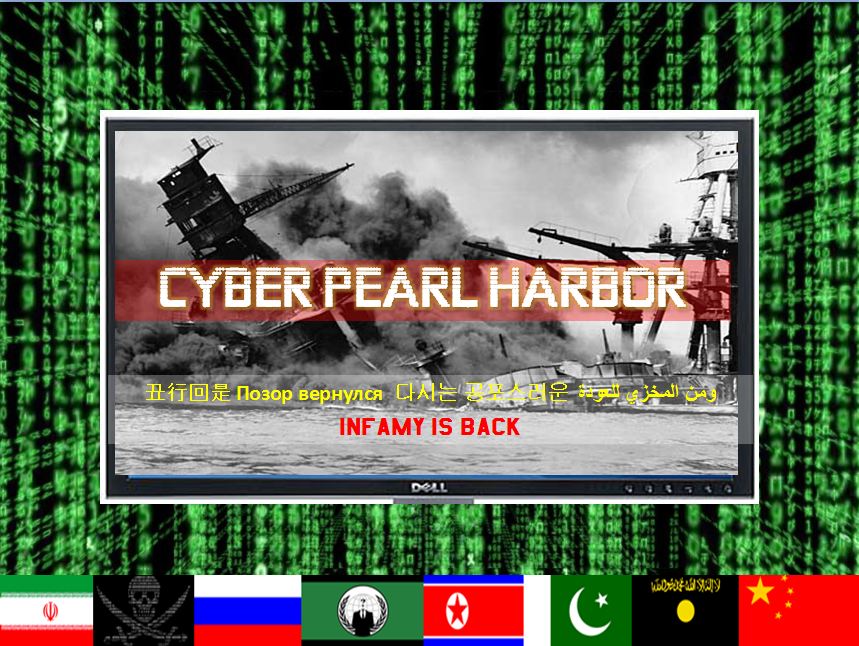‘We won’t get serious about cyber security until it’s far too late’: Paper
12/17/2015 / By usafeaturesmedia

(Cyberwar.news) A Canadian paper has hit the nail on the head when it comes to urgency surrounding the issue of cybersecurity: There won’t be any until a disaster strikes and the West is hacked back to the Stone Age.
In its “View” section recently, published online, the National Post opined that Americans and Canadians have it wrong when it comes to identifying the greatest threat to both countries.
“A recent poll suggested that Americans disagree what the greatest threat facing them is, with Republicans naming armed terrorists and Democrats naming armed citizens. Both are rather missing the main point. As are Canadians,” the Post noted.
Rather, the danger most pressing is the increasingly prolific “Internet of things,” in which all aspects of our lives, from our smart phones to our electric grids to our computers to our banking systems and communications – are all online, and extremely vulnerable to hacking, denial of service attacks and malware that can destroy:
Banks, government departments, retailers, even Mattel’s new Barbie are not merely vulnerable, they seem almost unprotected, as though banks had not locked their vaults or posted guards in the good old days when it took a sedan and a tommy gun to rob them. And the more wired we get, the more systemic and ominous the risk.
Whitfield Diffie, co-creator 40 years ago of public key cryptography, told NBC recently, “To my mind, the most critical thing is our grand vulnerability is not to physical terrorism, but to a cyber attack on our critical infrastructure … power … gas and water, transportation, banking, communications…. opponents who have real capability to survey these systems stand a chance of developing a technique for causing them to collapse.”
And in this ever-changing, always dangerous world, there are numerous cyber threats – real, not imagined – facing the U.S. and our neighbor to the north, both of which rely on the Internet of Things to power our economies and the technology that makes our lives easier than at any time in the history of the planet (here, here, and here, for starters).
We all recoil at the horrific and deadly nature of physical terrorism. And there is always the possibility that some terrorist organization, perhaps ISIS or maybe one we’ve yet to learn about, could acquire and detonate a weapon of mass destruction in one of our major cities.
But the main strategic weakness from such groups – or Russia, China, Iran and North Korea – is a cyber Pearl Harbor that would destroy or knock out for the long term everything from our power grids to our banking systems to our air traffic control to our communications – even our logistics systems that enable food stores to restock their shelves. How would that play out in the dead of winter – no food, no electricity to generate warmth, and no ability to pay for either should they be restored?
“As for governments, NATO got hacked. So did the U.S. State Department, and Canada’s National Research Council. And on and on. What exciting surprises might the future hold? Plenty,” the Post continued.
Such an assault on our technology would result in “cybergeddon,” say more than one expert.
And what’s more, there is no going back to the “way it was” before. We’ve become not just dependent on interconnectivity and Internet-driven technology but addicted to it. And that’s not been a bad thing, given it’s ability to make everything more efficient, less harmful to the environment and economically viable.
All is not lost, however, as the Post noted:
The situation is bleak but not hopeless. Computer giants like Apple to Microsoft to Adobe, as well as specialised software security firms, are working frantically to improve security and if we follow simple directions on passwords, hotspots, two-factor authentication and so on we can make ourselves a lot safer in small things.
Crime and terrorism, of course, still matter. But if the ultimate sneak attack comes, the odds are good that it will be a digital assault. And we ought to be governing ourselves accordingly, the paper said.
- Click here to ‘like’ Cyberwar.news on Facebook, and never miss exclusive content!
See also:
Tagged Under: cyberwar in the world




















